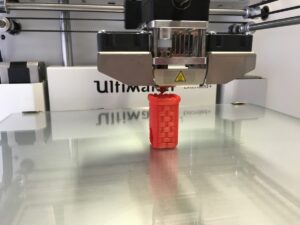There are over 6.8 billion people using smartphones worldwide, and it is clear that this technology is deeply embedded in our lives. Behind every smartphone is a complex web of manufacturing processes that combine innovative technology and precision engineering. At the heart of these processes are CNC machines, advanced tools that have revolutionised the way we produce phones (but not only) by improving efficiency, precision and design capabilities.

CNC machines allow manufacturers to automate otherwise difficult tasks, and year after year, they are proving essential in various manufacturing sectors, including phones.
Let’s take a look at how CNC machines have breathed new life into mobile devices, and see how they can improve the level of manufacturing in every respect.
Design flexibility
In the mobile phone industry, innovation is the most important factor. New, more innovative designs are introduced every year, and CNC machines play an important role. Thanks to their versatility, manufacturers are able to quickly modify designs and generate new prototypes without having to resort to extensive revisions of the production line (which would otherwise be necessary).
For companies wishing to optimise the prototyping process, it can be very advantageous to partner with reliable organisations such as 3ERP, which provide services that enable rapid prototyping and customised components with precision and speed.
It is thanks to the services offered by these companies that smartphone manufacturers are able to test new designs, make the necessary modifications and bring new models to market quickly.
Precision and attention to detail
A mobile device is made up internally of a large number of small components. To ensure that the device functions smoothly, each component must be manufactured with the utmost precision, which would not be possible without the use of CNC machines.
These machines, with their sophisticated mechanical and programming capabilities, are able to manufacture parts with a high degree of precision, ensuring that each component fits perfectly and performs its task.
Since even the smallest of errors can easily undermine the integrity of the micro-components that make up mobile devices, it is essential that CNC parts supplied by companies like Amastone are always available, helping to keep any CNC machine running efficiently over time.
Scalability and large-scale production
There is currently a huge demand for smartphones, and manufacturers are competing with each other to produce the largest number of devices in the shortest timeframe. This is where CNC machining technology comes into play.
After setting up the design and programming, one is able to effortlessly produce a large number of mobile devices identical to each other in succession, without anyone intervening and directing the process.
This makes things faster, but above all it ensures that every single phone is produced to the same standards, regardless of whether it is the first or the millionth.
Improved aesthetics and durability
The external design of a phone is what attracts the customer’s attention, although the internal components are more important.
Several elements are important when it comes to selling a mobile phone, from the design to the finish, not forgetting the build quality.
The use of CNC machines contributes greatly to meeting these design criteria. Their precision ensures that phone shells are built to perfection, with precise edges, smooth curves and an immaculate finish.
Sustainability and waste reduction
It is imperative that manufacturing processes are environmentally friendly in an age of increasing sustainability concerns. In this particular sector, CNC machines offer exceptional performance because they are able to make effective use of materials, reducing the amount of waste produced.
Limitations and obstacles to overcome
CNC machines have brought about a substantial transformation in the production of mobile phones, but they also entail a number of obstacles.
In some circumstances, using these machines so much leads to scenarios where human involvement is reduced to an absolute minimum.
Excessive reliance on machines could lead to significant problems in the event of software or mechanical failures.
In addition, with continuous technological advances, there is a continuous demand for manpower.
Final Thoughts
Over time, the mobile phone manufacturing industry has experienced significant growth. Computer numerical control (CNC) machines have been at the forefront of this transition, bringing unparalleled precision, speed and responsiveness.
It is expected that in the coming years these machines will continue to play an essential role in the production of smartphones, but also of all those technological objects that will be necessary for the daily lives of a large number of people around the world.





